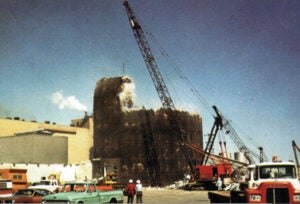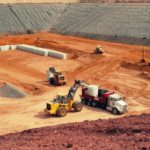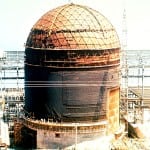Wisconsin’s Senate has voted to lift a longstanding ban on building new nuclear plants unless a federal site exists to store the waste and it can be shown to benefit ratepayers.
The Senate voted 23–9 for Senate Bill 384, with several Democrats joining Republicans in voting for the measure. The bill now heads to the desk of Gov. Scott Walker.
The bill sponsored by Rep. Kevin Petersen (R-Waupaca) was unanimously approved by the state assembly’s energy and utilities committee late last year and by a bipartisan voice vote in January in the full assembly. State Sens. Frank Lasee (R-De Pere) and Van Wanggaard (R-Racine) introduced identical legislation (Senate Bill 288) in Wisconsin’s Senate.
The moratorium blocking the state from building new nuclear plants was enacted in 1983. However, Petersen argued that nuclear technology had since advanced greatly. He also noted that while provisions of the federal Nuclear Waste Policy Act of 1982 required the government to build a permanent waste repository, the Obama administration filed with the Nuclear Regulatory Commission (NRC) to withdraw its license application for a high-level nuclear waste repository at Yucca Mountain in Nevada.
“Yucca Mountain is no longer needed,” Petersen said in November. “Instead, facilities such as Kewaunee and Point Beach are employing dry cask storage. Dry cask storage allows spent fuel that has already been cooled in the spent fuel pool for at least one year to be surrounded by inert gas inside a container called a cask.”
Petersen pointed out that the NRC’s August 2014–issued “The Continued Storage of Spent Nuclear Fuel Rule” supports the conclusion that “spent nuclear fuel can be safely managed in dry casks indefinitely.”
The bill, does not, however displace prioritized resources such as energy efficiency and renewables, he said. “If analyses prove nuclear energy is overly cost prohibitive, and sufficient renewables aren’t available, the bill still allows utilities to build or refurbish gas or other fossil fuel power plants.”
The state relies heavily on coal and gas for power, generating only about 15.5% of its power from two nuclear reactors in 2014: the 600-MW Point Beach 1 and 598-MW Point Beach 2 units in Two Rivers owned by NextEra. Under the now-paused Clean Power Plan, the state will need to reduce its carbon emissions by about 41% between 2012 and 2030.
—Sonal Patel, associate editor (@POWERmagazine, @sonalcpatel)









